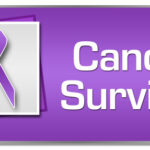Unlocking Heart Health: A Comprehensive Guide to Managing High Blood Pressure in Young Adults

In an era marked by fast-paced lifestyles and ever-evolving habits, the concern of high blood pressure—once reserved for older generations—has extended its reach to young adults. The modern confluence of stress, sedentary routines, and dietary choices has given rise to an alarming rise in hypertension cases among the young demographic. Yet, there is a silver lining: with awareness, proactive measures, and medical guidance, managing high blood pressure in young adults is an attainable goal. This comprehensive article is dedicated to unraveling the complexities of hypertension, empowering young adults to make informed choices, and offering a roadmap for a heart-healthy life.
Understanding the Silent Threat: High Blood Pressure
High blood pressure, clinically known as hypertension, is characterized by consistently elevated force exerted on artery walls as blood courses through them. This prolonged pressure can strain the heart and inflict damage upon arteries, setting the stage for potential heart diseases, strokes, and kidney complications. Blood pressure readings consist of two values: the systolic (higher) and diastolic (lower) readings. A normal blood pressure measurement hovers around 120/80 mmHg.
The Culprits Behind Young Adult Hypertension
The intricate tapestry of factors contributing to high blood pressure in young adults is woven with these strands:
- Dietary Delinquency: A diet replete with sodium, saturated fats, and processed fare can set the stage for heightened blood pressure.
- Sedentary Seduction: A sedentary lifestyle, marked by prolonged hours of sitting, is a gateway to weight gain and heightened hypertension risk.
- Stress Surge: Chronic stress not only takes an emotional toll but can trigger unhealthy coping mechanisms like overeating and excessive alcohol consumption, both of which can elevate blood pressure.
- Alcohol Amplification: Excessive alcohol intake, whether through binge drinking or regular consumption, can trigger blood pressure spikes and compromise heart health.
- Smoke Signals: Smoking poses a double threat, constricting blood vessels and raising blood pressure levels, thereby magnifying the risk.
- Genetic Predisposition: A family history of hypertension can cast a long shadow over an individual’s cardiovascular health.
Powering Prevention and Proactive Lifestyle Changes
The journey towards preventing and managing high blood pressure hinges on embracing a positive transformation of lifestyle habits:
- Culinary Compass: Pivot towards a heart-healthy diet that gravitates toward whole foods, fresh fruits, crisp vegetables, lean proteins, and fiber-rich whole grains. Strive to curtail sodium intake and limit the consumption of processed and sugary indulgences.
- Move to Maintain: Commit to a regime of regular exercise, with the goal of at least 150 minutes of moderate-intensity aerobic activity every week. The palette of physical activities includes brisk walks, invigorating jogs, refreshing swims, and scenic bike rides. Exercise not only fosters weight management but also significantly contributes to lowering blood pressure.
- Stress Subjugation: Employ stress-reduction strategies that span the gamut from mindfulness and deep breathing exercises to the tranquility of yoga and meditation.
- Balancing Acts: Moderation becomes the buzzword when it comes to alcohol consumption. To bolster heart health, consider curtailing or moderating your alcohol intake. Additionally, quitting smoking stands as a pivotal stride toward improving overall cardiovascular well-being.
- Weight Wisely: Shedding excess pounds can exert a profound influence on blood pressure levels and overall heart health.
Navigating the Medical Frontier: Monitoring and Guidance
Vigilant monitoring of blood pressure assumes paramount importance in the quest to maintain cardiovascular wellness. Young adults are advised to undergo blood pressure checks at least once every two years, with increased frequency for those bearing hypertension risk factors.
When lifestyle modifications fall short in corralling high blood pressure, medical intervention in the form of prescribed medications might be warranted. Among the armamentarium of hypertension medications, diuretics, ACE inhibitors, angiotensin II receptor blockers, and beta-blockers assume the forefront. These pharmacological allies work in unison to mitigate blood pressure, alleviating the load on the heart and blood vessels.
In summary, meticulous approach to managing high blood pressure in young adults rests upon the pillars of conscientious lifestyle choices, steadfast awareness, and expert medical counsel. Through the cultivation of a diet that nourishes the heart, the pursuit of regular exercise, the mastery of stress, and the liberation from detrimental habits, young adults can radically diminish the specter of hypertension and its attendant complications. Remember, the trajectory to heart health is sculpted through small yet profound alterations that pave the way to a life enriched by the vitality of a healthy heart.



